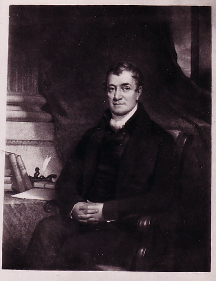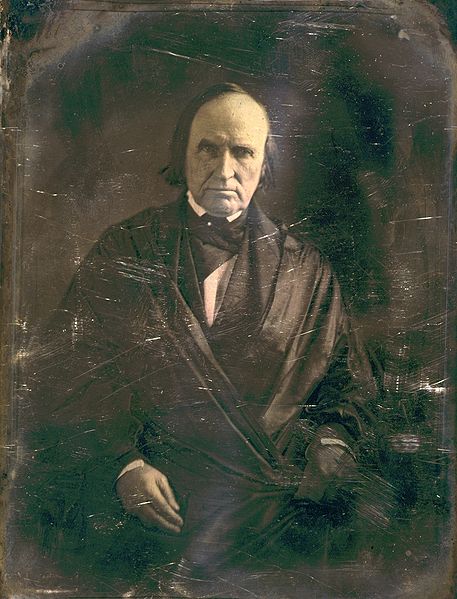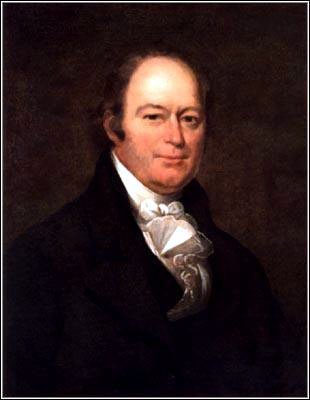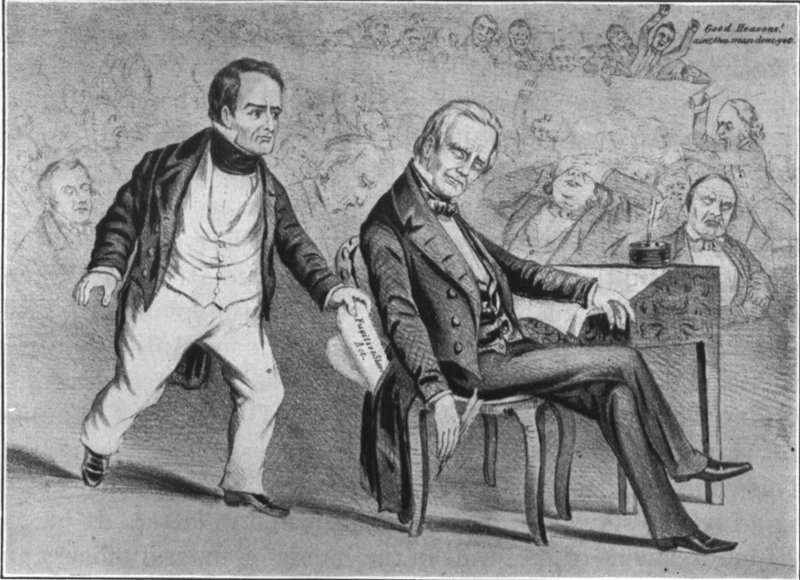As we have seen, Slaughter's attorneys made two sorts of arguments. First, they claimed that Mississippi law did not make illegal the importation of slaves into the state for sale. In the alternative, they argued that, even if Mississippi law did bar the importation of slaves, such a law was unconstitutional because it violated the Commerce Clause.
As you might expect, the indorsers denied both propositions. First, they asserted that the wording of the Mississippi constitution was crystal clear: the importation of slaves into the state for sale was forbidden and illegal.
They then moved to the federal constitutional issue. Henry D. Gilpin conveniently began this portion of his argument by summarizing three lines of attack:
It is said, that it is, because the constitution gives to congress the power "to regulate commerce with foreign nations, among the several states, and with the Indian tribes." Is the prohibition to import slaves into Mississippi, for sale within that state, such a regulation of commerce among the several states, as congress had the sole authority to make? It is submitted-1. That it is not a regulation of commerce among the states. 2. That if it were, it is one excepted from this power of congress, and remains in the state. 3. That if it were vested in congress, it may also be exercised by the state.
The core of the first point -- "[t]hat it is not a regulation of commerce among the states" -- was based on the proposition that it was inconceivable that a slave state could not regulate the introduction of slaves within its borders. This was, Gilpin urged, an internal matter that did not affect interstate commerce. After quoting portions of a famous early interstate commerce opinion (relating to interstate transportation of passengers), Gilpin continued:
Is not this a commerce carried on between man and man, in the state of Mississippi? Is it not a matter that does not affect other states? Is it necessary for the general government to interfere, for the purpose of executing its powers? It is the importation of a slave; the sale of a slave. His being a slave; his being a subject of sale, is a matter depending solely on the state of Mississippi. It is by the local law alone, that the subject-matter of importation and sale is created. No other state is affected by its existence or non-existence. It is not necessary for any powers of the general government, that it should be able to enforce this sale or this importation, unless it has the power not to regulate, but to create articles of commerce.
Gilpin then hit Daniel Webster precisely where he was weakest: Webster's argument (discussed in the last post) that a free state could bar the importation of slaves, whereas a slave state could not. What's good for the goose, Gilpin noted, is good for the gander:
Suppose, Mississippi had said, no negroes shall be sold as slaves, within her limits; can congress interfere, to abolish this, on the ground that it affects other states? That will not be contended; yet, if it cannot, then its interference to regulate the disposition of them-the manner in which they are to be dealt with-is assuming a power over a subject-matter which the states themselves can abolish or create.
To avoid the force of this inference, a distinction has been taken, in regard to the importation of slaves into the slave-holding and non- slaveholding states. But where is this distinction found? Certainly not in the letter of the constitution; certainly not in its spirit. It is admitted, that the importation of a slave into New York, where the sale as a slave, and his detention in slavery, are forbidden, may be prohibited; yet it is urged, that the importation of a slave into Mississippi, where his sale, when so brought, is forbidden, cannot be prohibited. The distinction is not to be sustained. Commerce is the traffic in articles which are the subjects of traffic, either in the place from which they are brought, or the place to which they are taken, If the place from which they are brought is the test, then is every slave, taken from Virginia to New York, an article of commerce, and any regulation by the latter in regard to him, is a violation of the constitution. If the place into which they are imported, determines their character, then is the privilege of the slave state, in regard to their disposition as matters of commerce, as strictly constitutional and complete as that of the free states.
Next, Gilpin argued that, even if the bar on imported slaves affected commerce, Mississippi was entitled to do so because it was exercising its police powers. Mississippi was merely protecting itself, just as New York had been protecting itself in
Miln (discussed in the last post):
This court . . . had laid down the rule, that a state might do whatever was necessary to protect itself internally; its quarantine, police, pilot laws, &c., all relating to and connected with navigation and commerce. . . . The evils against which the people of Mississippi desired to protect themselves, have been fully pointed out. Their determination to stop the introduction of slaves, without corresponding emigration; to guard against the admission of the vicious, through the deceptions of negro-traders, were evidently objects of proper municipal regulation, equally concerning the welfare of the whole people of the state, and that of many an individual within it.
Finally, Gilpin argued (in the alternative and as a last resort, to be sure) that this was a matter over which both Congress and the state of Mississippi had concurrent authority. Even assuming that the Constitution granted Congress power over the interstate slave trade, Congress had chosen not to exercise that power. Nothing, therefore, prevented the states from doing so:
Even if we admit congress might regulate them, could not that state also do so? And if not, to what serious evils might it lead! Congress has never yet acted on the subject; yet who can deny, that it is a subject that must have been acted on? It is submitted, therefore, on all these grounds, that this is not a regulation of "commerce among the states," according to the meaning of the constitution; but if it is, it is one that the states themselves have also a right to make.
Next, we will begin to examine what the Supreme Court did with this welter of arguments and counterarguments.
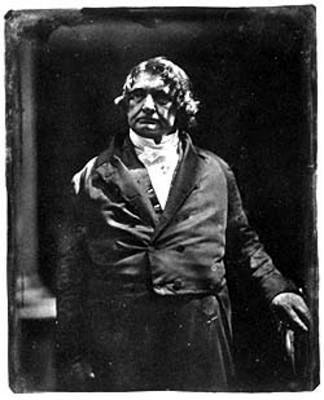 The case of Commonwealth v. Aves, 35 Mass. 193 (1836) is a relatively well-known early decision in which a respected northern state court judge declared free a slave brought into a non-slave state only "for [a] temporary purpose . . . but not acquiring a domicil here."
The case of Commonwealth v. Aves, 35 Mass. 193 (1836) is a relatively well-known early decision in which a respected northern state court judge declared free a slave brought into a non-slave state only "for [a] temporary purpose . . . but not acquiring a domicil here."
